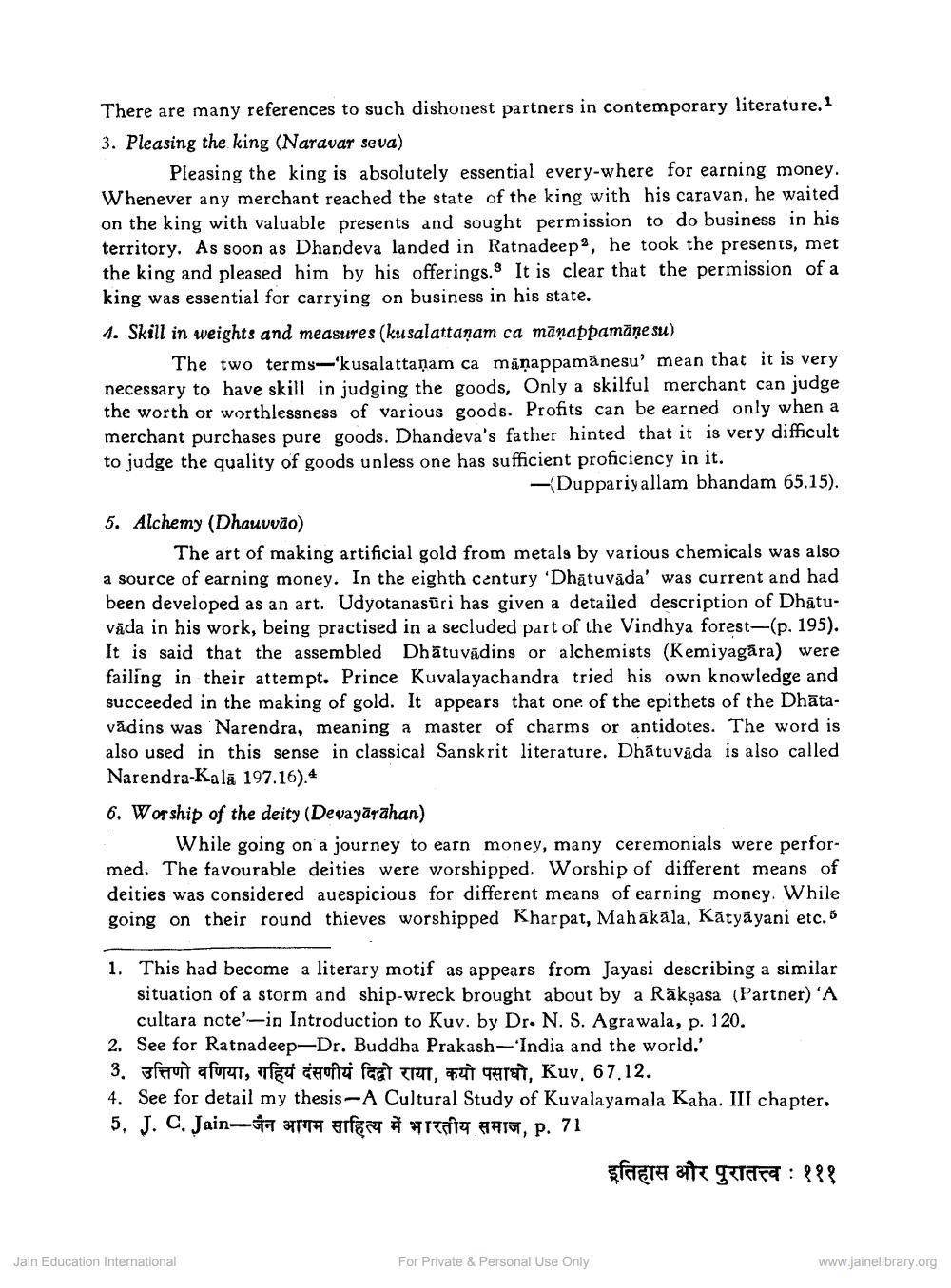Book Title: 8th Century Document on Means of Earning Money Author(s): Prem Suman Jain Publisher: Z_Nahta_Bandhu_Abhinandan_Granth_012007.pdf View full book textPage 3
________________ There are many references to such dishonest partners in contemporary literature. 1 3. Pleasing the king (Naravar seva) Pleasing the king is absolutely essential every-where for earning money. Whenever any merchant reached the state of the king with his caravan, he waited on the king with valuable presents and sought permission to do business in his territory. As soon as Dhandeva landed in Ratnadeep, he took the presents, met the king and pleased him by his offerings. It is clear that the permission of a king was essential for carrying on business in his state. 4. Skill in weights and measures (kusalattanam ca māņappamāṇe su) The two terms-kusalattanam ca mânappamānesu' mean that it is very necessary to have skill in judging the goods, Only a skilful merchant can judge the worth or worthlessness of various goods. Profits can be earned only when a merchant purchases pure goods. Dhandeva's father hinted that it is very difficult to judge the quality of goods unless one has sufficient proficiency in it. —Duppariyallam bhandam 65.15). 5. Alchemy (Dhauvvão) The art of making artificial gold from metals by various chemicals was also a source of earning money. In the eighth century 'Dhātuvāda' was current and had been developed as an art. Udyotanasūri has given a detailed description of Dhātuvāda in his work, being practised in a secluded part of the Vindhya forest-(p. 195). It is said that the assembled Dhātuvādins or alchemists (Kemiyagāra) were failing in their attempt. Prince Kuvalayachandra tried his own knowledge and succeeded in the making of gold. It appears that one of the epithets of the Dhātavādins was Narendra, meaning a master of charms or antidotes. The word is also used in this sense in classical Sanskrit literature. Dhātuvada is also called Narendra-Kalā 197.16).4 6. Worship of the deity (Devayāgahan) While going on a journey to earn money, many ceremonials were performed. The favourable deities were worshipped. Worship of different means of deities was considered auespicious for different means of earning money. While going on their round thieves worshipped Kharpat, Mahākāla. Kātyāyani etc.5 1. This had become a literary motif as appears from Jayasi describing a similar situation of a storm and ship-wreck brought about by a Raksasa (Partner) 'A cultara note'-in Introduction to Kuv. by Dr. N. S. Agrawala, p. 120. 2. See for Ratnadeep-Dr. Buddha Prakash-India and the world.' 3. feruit afurer, fu dhuit fagt tie, pe caret, Kuv, 67.12. 4. See for detail my thesis-A Cultural Study of Kuvalayamala Kaha. III chapter. 5. J. C. Jain-09 TT afect T T 991, p. 71 इतिहास और पुरातत्त्व : १११ Jain Education International For Private & Personal Use Only www.jainelibrary.orgPage Navigation
1 2 3 4 5 6
